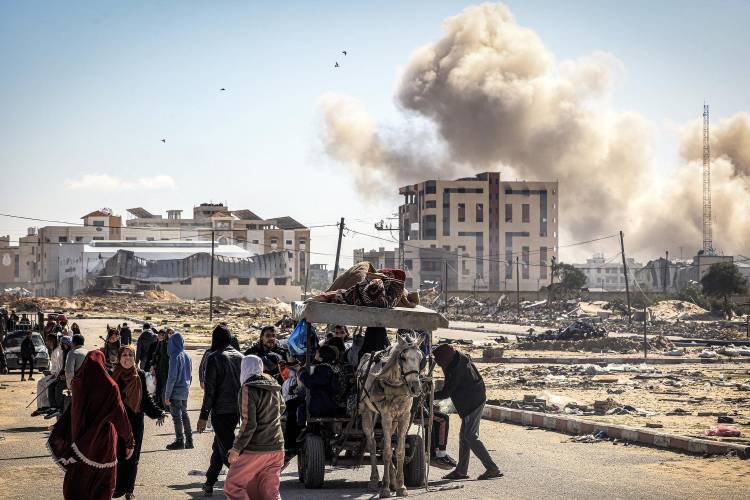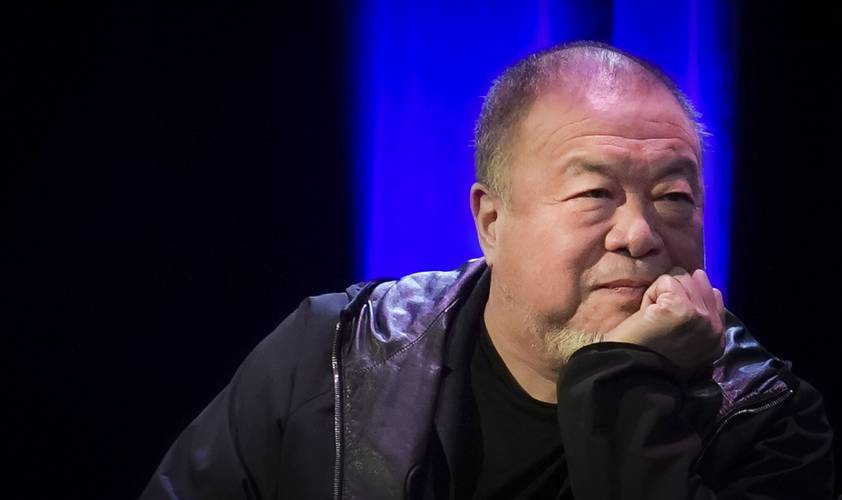Opinion: Speak your thoughts loudly and without considering the consequences
| Published: 02-04-2024 6:00 AM |
Robert Azzi is a photographer and writer who lives in Exeter. His columns are archived at robertazzitheother.substack.com
I remember the time in 1984, following the Israeli-Lebanese War, when Columbia Professor Edward Said published “Permission to Narrate” in the London Review of Books. Said controversially critiqued the Western media’s biased coverage of the war, which favored the Israeli narrative and suppressed Palestinian perspectives and viewpoints.
Professor and Old Testament scholar Walter Brueggemann wrote that Said’s commentary “concerns the way in which that war was reported and championed in the West with unrestrained embrace of the Israeli cause. [Permission to Narrate] is Said’s courageous reference to the fact that Israel and its defenders were given the ‘right to narrate’ the war from Israel’s perspective and according to Israel’s interest. The Palestinians, by contrast, were denied such a right, had no advocates, and were not permitted to narrate their version of the crisis.”
“Said’s observation of the one-sided reportage on the war concerned the way in which counter opinion had been silenced, censored, and screened out,” Brueggemann continued. “He noted, for example, that John Chancellor on NBC had said that Israel in the war had been ‘savage,”’ but days later he retracted that statement as a ‘mistake.’ Because there was no allowance for a counter-narrative, Israel’s version went unchallenged in a way that was able to present the Palestinians as ‘terrorists.’”
A bigoted presentation that continues to this day.
Today, 40 years later, little has changed. The Arab narrative continues to be interrogated and marginalized — if presented at all — while American media fawns over Israeli politicians and pro-Israel pundits.
The consequences of such prejudices don’t just impact Palestinians or Arabs or Muslims — they disproportionately impact all minorities and people of color. They not only distort the historical record but put our own national security at risk.
The prejudice persists.
Article continues after...
Yesterday's Most Read Articles
 To provide temporary shelter, Concord foots the bill for hotel stays for people experiencing homelessness
To provide temporary shelter, Concord foots the bill for hotel stays for people experiencing homelessness
 ‘I’m a whole different kind of mother’ – Raising a four-year-old at age 61 is just life for Barb Higgins
‘I’m a whole different kind of mother’ – Raising a four-year-old at age 61 is just life for Barb Higgins
 Authorities believe mother shot three year-year-old son in Pembroke murder-suicide
Authorities believe mother shot three year-year-old son in Pembroke murder-suicide
 ‘I hate to leave’: Three-alarm fire in Loudon burns centuries-old home to the ground
‘I hate to leave’: Three-alarm fire in Loudon burns centuries-old home to the ground
 Hometown Hero: Joan Follansbee energizes morning drop-offs with dance moves
Hometown Hero: Joan Follansbee energizes morning drop-offs with dance moves
 Merrimack Valley superintendent Randy Wormald to retire at end of next school year
Merrimack Valley superintendent Randy Wormald to retire at end of next school year
Today, I harangue about ethnic cleansing and genocide being perpetrated against the Palestinian people, rant about the American government being complicit with war crimes.
“You’ve never written so many columns in a row on a single issue before,” a friend wondered this week. “Why is this different? You’ve written about Palestinians and Arabs and Muslims before ... Why are you so persistent?”
I persist because the horrors continue, because it matters to me, because it should matter to you.
It matters, I told them, because I’ve increasingly come to understand how truly intersectional this all is, how personal; that I’ve come to realize that when a poet is killed in Gaza, when an olive tree is felled down by illegal settlers on the occupied West Bank, when a house that sheltered a family for generations is bulldozed in occupied East Jerusalem; that it is our creativity and imagination, our shelter, our nourishment being denied.
It is we who are being assaulted, we whose narratives are ignored. We who are separated from those whom we love, we who no longer hear from loved ones, we who are under attack from forces of intolerance and bigotry.
They are my issues: They should be your issues.
Together, let us mourn the loss of all innocent life; let us investigate issues of occupation and oppression of the Palestinian peoples; together investigate the administrative detentions, torture, the theft of land and property, the illegal settlements, and denial of all human and political rights.
Investigate together the settler rampages and pogroms being inflicted throughout the occupied West Bank; investigate the confiscation of land, the destruction of civil institutions and the continued destruction of thousands of Palestinian homes throughout the occupied territories beyond Gaza.
“It would be hard to overstate the symbolic value of a house to an individual for whom the culture of wandering and of becoming rooted to the land is so deeply ingrained in tradition, for an individual whose national mythos is based on the tragedy of being uprooted from a stolen homeland,” Israeli historian Meron Benvenisti wrote in 2002.
Let them investigate the uprooting of a people from their stolen homeland with neither a right to return nor compensation.
Let them investigate the murders of American journalist Shireen Abu Akleh, of Tawfic Abdel Jabbar, 17, a Louisiana native. Investigate the number of journalists killed in Gaza which, according to the Committee to Protect Journalists, includes at least 83 journalists and media workers since Oct. 7.
Let them investigate the unsurprising ignorance and prejudice of former Speaker Nancy Pelosi who today said in a CNN interview that she thinks some of the protests demanding a Gaza ceasefire could be linked to Russia: “For them to call for a ceasefire is Mr. Putin’s message ... Make no mistake, this is directly connected to what he would like to see... I think some of these protesters are spontaneous, and organic, and sincere. Some I think are connected to Russia. Some financing should be investigated and I want to ask the FBI to investigate that.”
Let them witness that free of speech on university campuses is under attack, that beyond well-known controversies and protests at Harvard, Columbia, and UPenn that Rutgers University suspended its chapters of the Students for Justice in Palestine, that Indiana University barred a tenured professor of political science and Middle Eastern studies after incorrectly filling out a room request form for an event organized by the Palestine Solidarity Committee, that the University of Michigan recently canceled student elections on resolutions related to Palestine and Israel. Let them investigate that Florida state officials are attempting to deactivate the University of Florida chapter of Students for Justice in Palestine.
Witness that Barnard College administrators removed, without consultation, links posted by professors in support of a view that the struggle of Palestinians against “settler colonial war, occupation and apartheid” was also a feminist issue.
Let them witness that Ai Weiwei has been cancelled.
In 2016, internationally-regarded Chinese artist Ai Weiwei went to Gaza and reported that “While in Gaza, I witnessed the lives of its people, including children, women, and ordinary citizens, who grapple with survival under the weight of daily and unjust violence. Even as someone who grew up in an extremely authoritarian Communist country, such conditions were almost unbelievable to me ... suppression and humiliation were experiences beyond my previous imagination.”
In November 2023, however, after posting comments perceived as Palestinian-favorable and by some observers as perhaps antisemitic, Ai Weiwei discovered that even global fame couldn’t protect him, and three planned exhibits, in London, New York, and Paris, were cancelled.
“Censorship, fundamentally rooted in power, takes direct aim at voices deviating from publicly accepted values and widely disseminated information,” he responded. “The suppression of these voices poses a direct challenge to the legitimacy of power. In a civil society, every citizen possesses not only the right but also the obligation to articulate their thoughts.”
Let us witness that Ai Weiwei was cancelled.
“Speak your thoughts loudly, and without considering the consequences.” — Ai Weiwei
Speak your thoughts loudly.









 Opinion: My memories of Vietnam 50 years later
Opinion: My memories of Vietnam 50 years later Opinion: Concord officials: Can we sit and talk?
Opinion: Concord officials: Can we sit and talk? Opinion: Trump versus the U.S. Constitution
Opinion: Trump versus the U.S. Constitution Opinion: Protect our winters!
Opinion: Protect our winters!
